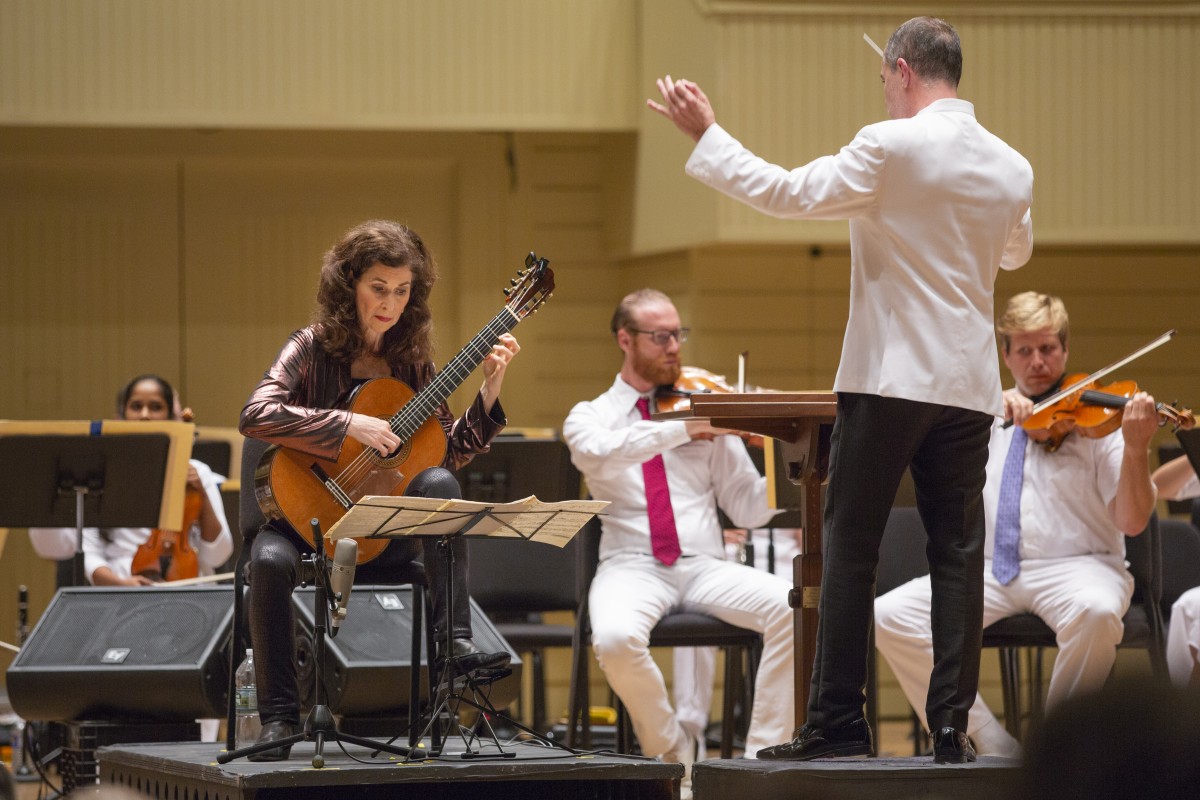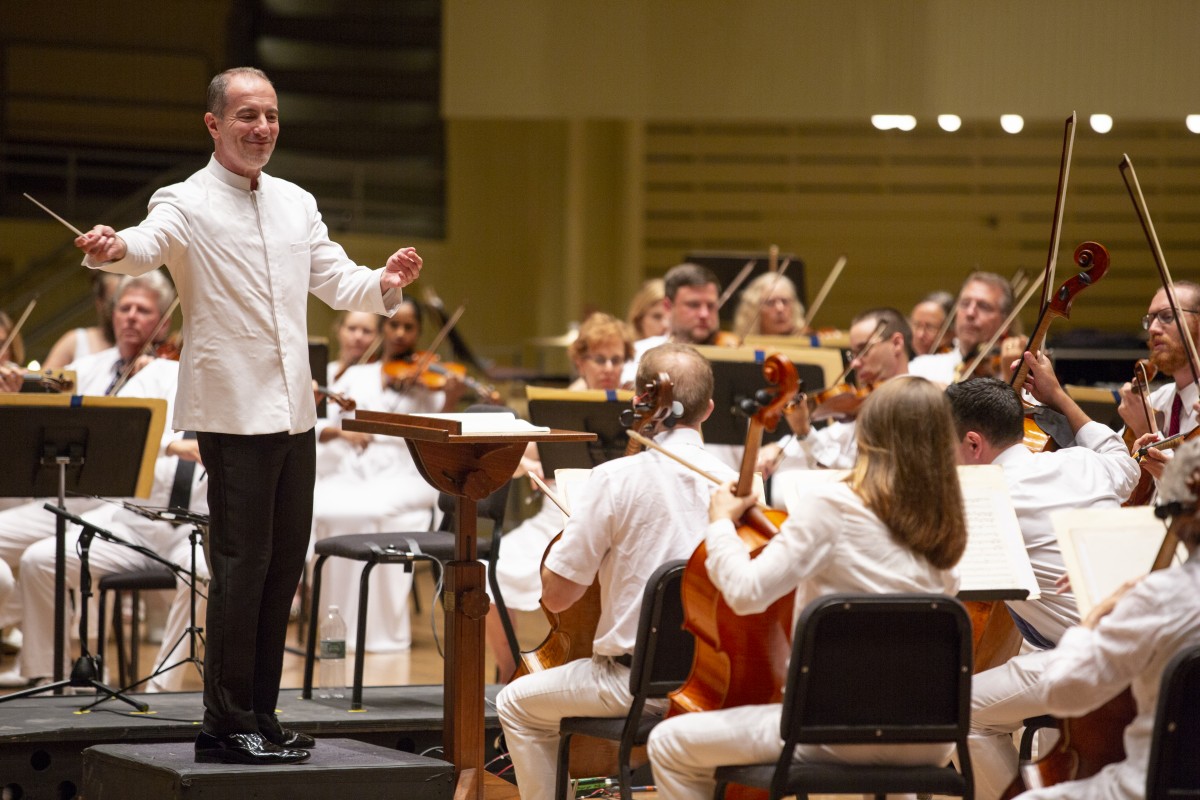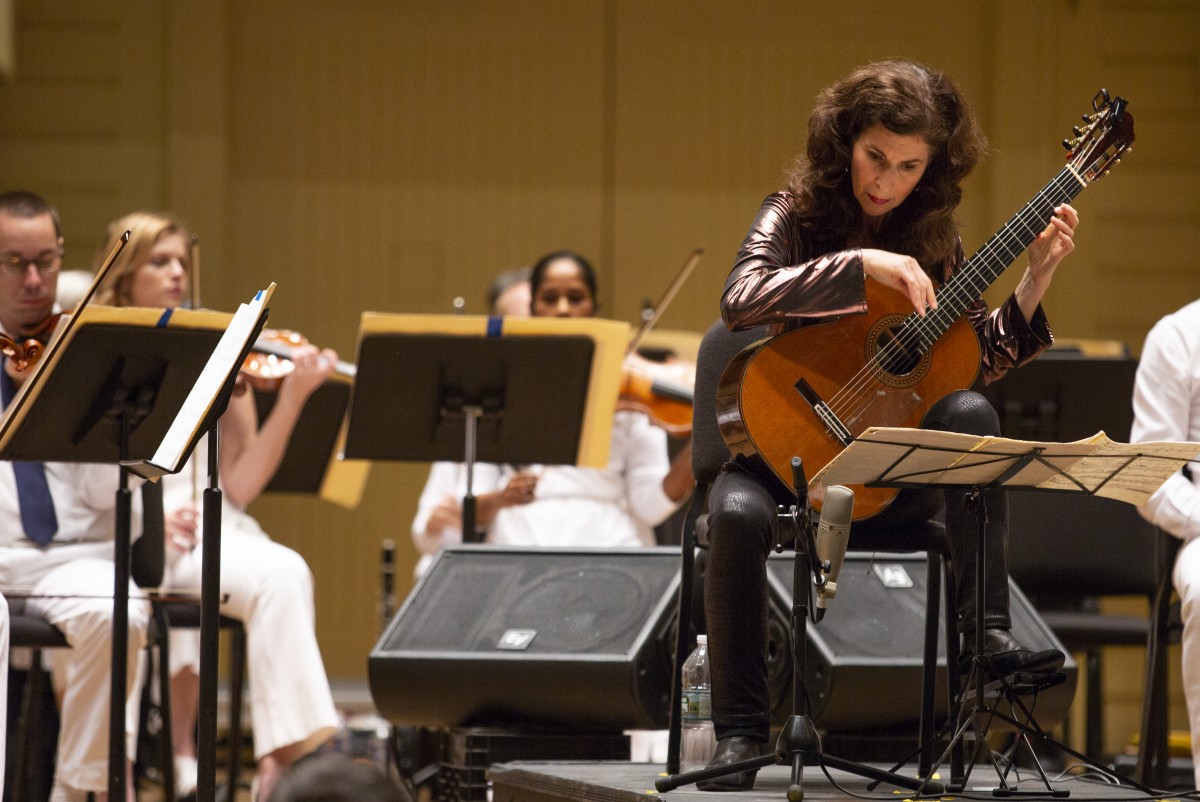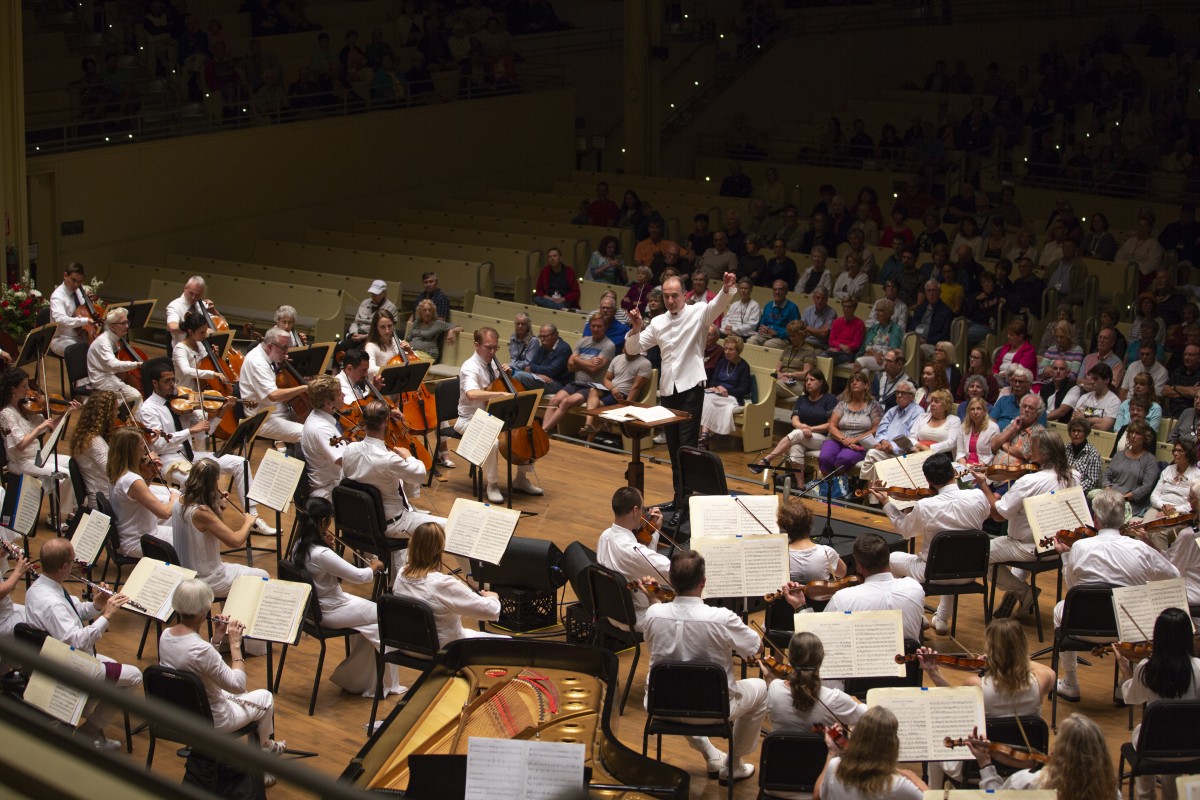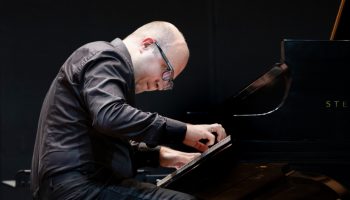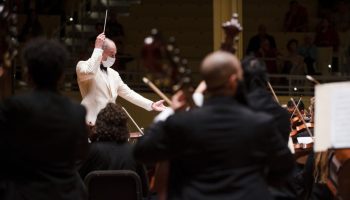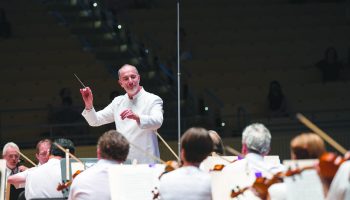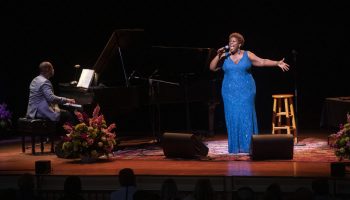One distinct, widely overlooked advantage to visiting Chautauqua at the end of the season: the Chautauqua Symphony Orchestra is at or near its very best.
So it seemed Saturday, anyway. On its penultimate performance of the year at the Amphitheater, the orchestra under Maestro Rossen Milanov sounded as galvanized, impassioned and cohesive as ever, likely as a result of working and playing together for two solid months. The CSO may be a seasonal orchestra, but its unity and depth are those of a group that plays year round.
Rossini’s Overture to William Tell wasn’t only the first work on the program, or the most famous. It was also the first sign Saturday that Milanov and the CSO were in peak form, both technically and artistically.
The cellos in the “Dawn” music sounded not only fully relaxed but also utterly rich and sumptuous. Likewise, the popular final march was as bright and transparent as it was brisk and hard-driven. In between came a bold, hard-hitting storm scene and some of the loveliest work imaginable by the CSO’s English horn in the pastorale, another classical blockbuster.
Mendelssohn’s “Italian” Symphony No. 4 offered more of the same. Clearly inspired by the score and engaged by Milanov, the CSO Saturday turned in a feisty, expressive reading certain to linger in this listener’s mind for some time to come, the sort of performance only a veteran, close-knit ensemble can engender.
Zeal might have been the defining trait of the opening Allegro, had the electricity of the orchestra’s counterpoint not come along later and stolen the show. Similarly, the fireworks audible somewhere in the distance during the Presto proved to be the perfect nonmusical embodiments of the performance: white-hot and explosive.
It wasn’t all fire and brimstone, either. The orchestra under Milanov Saturday, Aug. 18, was also in great lyrical and expressive shape, as evidenced by a luminous, firmly supported Andante and a minuet and trio suave to the ear and saturated with feeling. Give this orchestra Mendelssohn, and plenty of it.
The repertoire, too, remains interesting right up to the end. Saturday, for instance, instead of trotting out a tired warhorse, the orchestra hosted acclaimed guitarist Sharon Isbin for a refreshing performance of John Corigliano’s “Troubadours,” a little-known set of variations for guitar and chamber orchestra penned in 1993.
Isbin, like her CSO peers, brought her “A game” to the evening, generating genuine affection for a work she helped bring into being and that in lesser hands might have left listeners simply scratching their heads.
Hints of centuries-old melody came into gorgeous, shimmering focus, only to dissolve seconds later into eerie sighs and fragments laced with clarinet and percussion. Again and again, old and new traded places in this way, dancing like intimate partners, until the line between them, and the piece itself, faded to oblivion.
Give Corigliano credit for a bewitching score, one that makes effective use of the guitar in an orchestral setting and sustains interest with near-constant shifts in texture, melody and character. The CSO, too, deserves a collective nod for its colorful, stable support.
But the lion’s share of the plaudits on this occasion go to Isbin. Brilliant, poetic, resonant: Her musical voice is impossible to resist. Had she wielded that voice at the start of the season, she would have been a tough act for anyone to follow.
Zachary Lewis is the classical music and dance critic of The Plain Dealer in Cleveland, Ohio.

